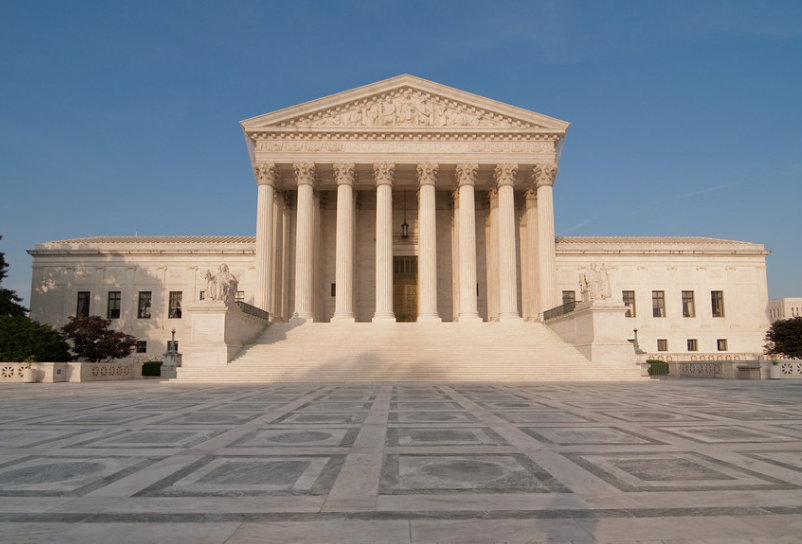Supreme Court Delivers Massive 6-3 Ruling

The U.S. Supreme Court ruled on Wednesday in favor of a former mayor of an Indiana city who was convicted of accepting a bribe. This decision might make it more challenging for federal prosecutors to bring corruption charges against state and local leaders.
The justices voted 6-3 to overturn a lower court decision that had upheld the corruption conviction of former Portage mayor James Snyder. Snyder was convicted for accepting $13,000 from a truck company that received over $1 million in contracts while he was in office.
The court’s conservative justices supported the opinion written by Justice Brett Kavanaugh, while the liberal justices dissented, according to Newsmax.
Federal prosecutors accused Snyder of corruptly soliciting a payment related to government contracts, a crime that could result in up to ten years in prison. A jury found him guilty, and he was sentenced to one year and nine months in prison.
“The question in this case is whether (federal law) makes it a crime for state and local officials to accept gratuities – for example, gift cards, lunches, plaques, books, framed photos or the like – that may be given as a token of appreciation after the official act,” Kavanaugh stated. “The answer is no.”
While Snyder was mayor, Portage awarded two contracts to Great Lakes Peterbilt for the purchase of five trash trucks worth about $1.1 million.
The following year, while Snyder was still in office, Peterbilt paid him $13,000, which Snyder claimed was a consultancy fee for his work for the company. According to Kavanaugh, Portage, a city in northwest Indiana with about 38,000 residents, appears to allow local public officials to seek outside employment.
The 7th United States Circuit Court of Appeals in Chicago rejected Snyder’s argument that the federal felony in question prohibits bribery but not gratuities. Snyder then appealed to the Supreme Court.
In Wednesday’s opinion, Kavanaugh stated that the federal corruption law “leaves it to state and local governments to regulate gratuities to state and local officials.”
“The legislation does not enhance those state and local rules by subjecting 19 million state and local officials to up to 10 years in federal prison for receiving even routine gratuities,” Kavanaugh said.
In a dissent written by Justice Ketanji Brown Jackson, the court’s liberal justices expressed concern about how the decision could hinder efforts to prosecute public corruption.
The government has not used the statute as a dragnet against permissible behavior, but rather to prosecute serious cases involving “exactly the type of palm greasing that the statute covers and that one might reasonably expect Congress to care about when targeting graft in state, local, and tribal governments,” Jackson wrote.
“After today, however, the ability of the federal government to prosecute such wrongful conduct is left in doubt,” Jackson said.
Last year, the court reversed the bribery conviction of an ex-aide to Democratic former New York Governor Andrew Cuomo, limiting federal prosecutors’ authority to pursue corruption cases.
The Supreme Court recently made headlines when the justices declined to hear a challenge to Texas voting rules that allow seniors to automatically vote by mail but not younger people.
Older voters can request an absentee ballot for any reason in Texas, Indiana, Kentucky, Louisiana, Mississippi, South Carolina, and Tennessee. In other states, older voters can only do this in specific situations.
As it did with a similar challenge to Indiana’s voting laws in 2021, the court on Monday declined to hear an appeal from three Texas voters. Additionally, it twice refused to hear earlier versions of the Texas lawsuit filed by the Texas Democratic Party during the COVID-19 pandemic.
The challengers argued that the 26th Amendment forbids age-based discrimination, which they claimed was occurring with the unequal treatment of voters.
Ratified in 1971 to lower the voting age to 18, the amendment says the right to vote “shall not be denied or abridged … on account of age.”
“Whatever voting rights a state grants to people aged 65 and over, it must also grant to people under 65,” the Texas voters told the Supreme Court in their unsuccessful appeal.
They sought to overturn an appeals court’s decision that Texas’ rules are legal since making it easier for some people to vote doesn’t make it harder for others.
Also, the 5th U.S. Circuit Court of Appeals in New Orleans stated that the right to vote did not include the right to vote by mail when the 26th Amendment was enacted.
Most states either mail ballots to all voters or allow any resident to request an absentee ballot.
Yet, Texas has taken a different approach to safeguarding the integrity of voting. It also acknowledges that older voters may have limited mobility or other issues that make it harder for them to vote in person.
Anyone could request a mail-in ballot, but the state argued that this would increase the likelihoodof voter fraud.
The 2022 midterm elections saw about one-third of voters send in their ballots.
The voters challenging Texas’ voting rules cited numerous obstacles young voters face when trying to vote in person, including lack of transportation, long lines, difficulty finding or accessing polling places, and limited time off from work.
Mail-in voting has been a significant topic leading into November’s presidential election, with several key rulings being issued in courts across the country.